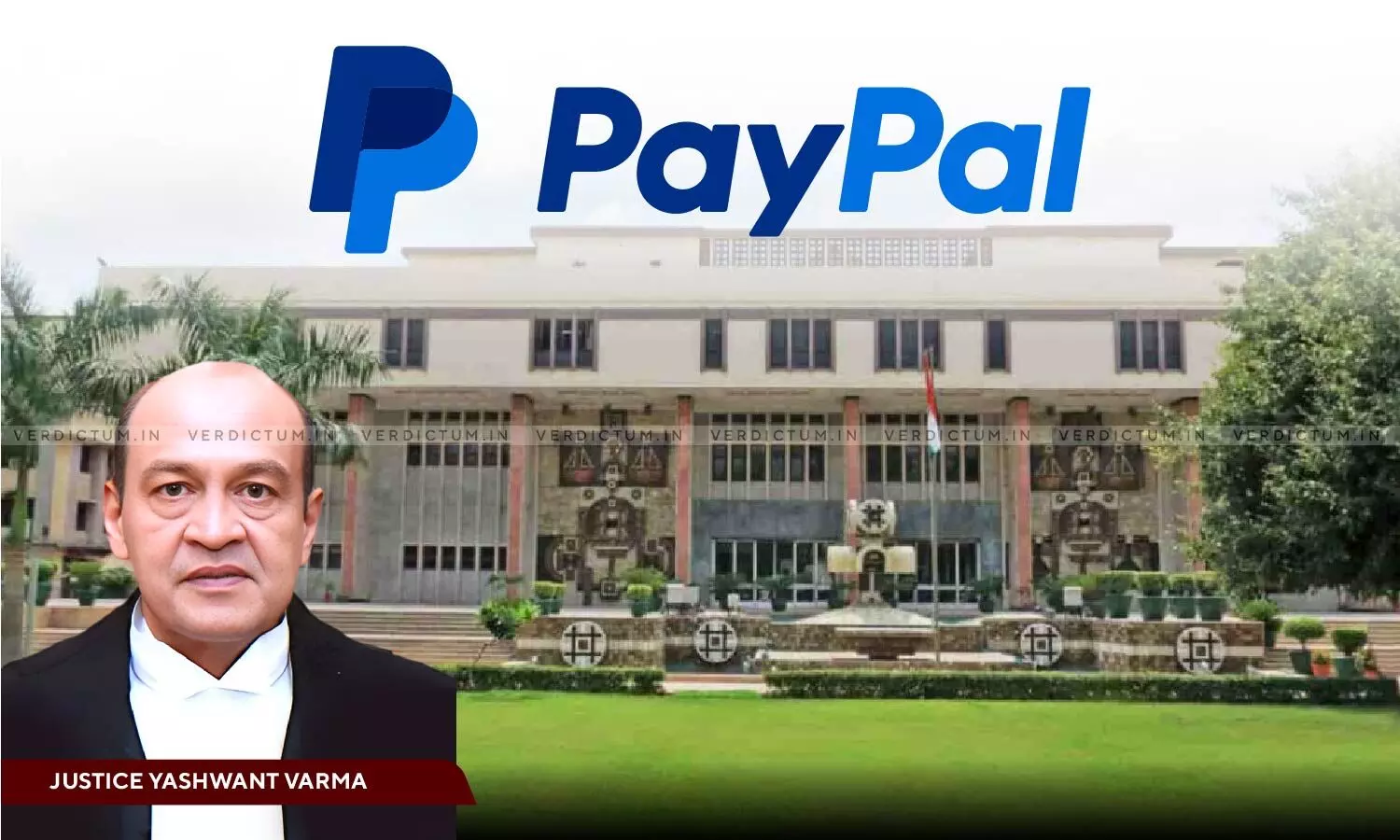
PayPal A "Payment System Operator", Required To Comply With Reporting Entity Obligations Under PMLA: Delhi HC
 |
|A Delhi High Court Bench of Justice Yashwant Varma has held that PayPal is liable to be viewed as a "payment system operator", and in light of the same, is obliged to comply with the reporting entity obligations placed under the Prevention of Money Laundering Act, 2002.
Senior Advocate Kapil Sibal and Senior Advocate Sajan Poovayya appeared for PayPal, while Counsel Zoheb Hossain, among others, appeared for the FIU. Senior Advocate Parag P Tripathi appeared for the RBI.
In this case, PayPal impugned an order passed by the FIU, through which it held PayPal to be a "reporting entity" under the Prevention of Money Laundering Act, and proceeded to impose monetary penalties for it having failed to comply with the reporting obligations as placed under the Rules.
PayPal asserted that it is not a payment system operator as defined under the PMLA and that it would be erroneous for FIU to hold it to be a Reporting Entity. On the other hand, FIU asserted that the business model of PayPal clearly established that it would fall within the definition of a reporting entity as embodied in Section 2(1)(wa) of the PMLA.
Further, PayPal argued that the FIUI had imposed an unjustifiably high monetary penalty of Rs. 1,00,000 for each of the three alleged offences every month, spanning over 32 months. According to PayPal, this calculation of the penalty was clearly unreasonable and not supportable.
The High Court observed that there was merit in the challenge raised by PayPal.
- PayPal To Be Viewed As Payment System Operator
On perusal of the definition clause under the PMLA, the Court observed that all elements of the transaction comprised or connected with a payment being effected between two parties would appear to fall within the scope of the expression payment system as defined under Section 2(1)(rb).
In that context, the Court further said that it was unable to accord a restrictive construction to the expression or read it so as to be confined only to a system which may be literally or in actuality concerned with handling funds between a payer and a beneficiary. Issuing a clarification, the Court observed that, "Any system which enables the transfer of money between two ends would thus appear to fall within the ambit of the expression payment system. The Court thus finds no justification to restrict the application of the expression payment system only to those entities which may be directly or undeviatingly engaged in the handling or transferring of funds."
- Levy of Penalty Imbued With Quasi-Criminal Characteristic
The Court observed that a penalty would be justified provided it is established that a party had failed to comply with legal obligations deliberately, in defiance of the law or be guilty of contumacious or dishonest conduct, and not leviable merely because it was lawful to do so. Relying on the case of Hindustan Steel Ltd. vs. State of Orissa, the Court further observed that the imposition of penalty would also not be justified where a person is found to have proceeded on the bona fide belief that it was not covered by the provision or legally obliged to effect compliance.
In that context, the Court noted that PayPal had consistently taken the position that it could not be held to be a payment system operator under the PMLA, and this could not possibly be said to be wholly specious or in wilful disobedience to abide by a legal obligation which was either apparent or free from doubt.
In light of the same, it was said that, "PayPal can thus be justifiably said to have been proceeding under the bona fide belief that its operations did not fall within the ambit of the PMLA."
- Stand of PayPapal Collaborative
The Court noted that the stand of PayPay was evident from its communications with FIU, and it was essentially collaborative and a testament to its intent to arrive at a mutually acceptable solution. The Court further said that, "This is also manifest from its approach of both parties identifying a “mutually acceptable mechanism” and the suggestion of three models of information sharing forming part of their letter".
- Statute Does Not Prescribe Monthly Penalty
Regarding the issue of quantification, the Court noted that Section 13(2)(d) did not prescribe or stipulate the imposition of penalty for each month of default. It was further noted that the statute did not speak of noncompliance amounting to a continued infraction or one which may warrant the imposition of penalty on a monthly basis.
In light of the same, the Court found merit in the challenge raised with respect to the maximum penalty being imposed on the ground of an abject failure on the part of the respondent to confer consideration on the nature of questions which were raised by PayPal. In that context, it was observed that, "It was, in the considered opinion of this Court, imperative for FIU-IND to have recorded reasons in justification of the levy of the maximum penalty provided under the statute."
Accordingly, the petition was partly allowed.
Cause Title: PayPal Payments Private Limited v. Financial Intelligence Unit India & Anr.
Click here to read/download the Judgment